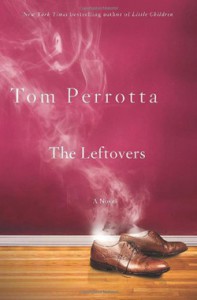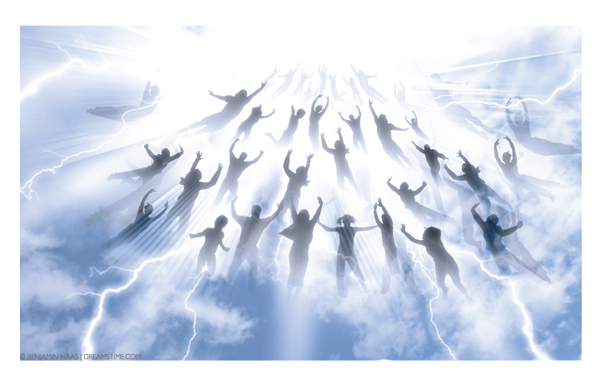The Leftovers

The Rapture is not dead. Despite the biblical admonition found in Matthew 24:36 (NIV) that, “about that day or hour no one knows, not even the angels in heaven, nor the Son, but only the Father,” we’ve been subjected this past year to the rants and “revelations” of Harold Camping and his Family Christian Radio network. In response to Camping’s predictions of May 21 and October 21 as our days of doom, a few dedicated believers sold their belongings, stopped funding their children’s educations and did what they could to spread the word. Although both days passed uneventfully for most of us, perhaps it did feel like the end of the world for Camping’s followers. It was the end of their world, because there was no end of the real world.
Camping was hardly the first, and surely won’t be the last purveyor of doom who warns us the end is near. Is life on Earth really so bad that it’s better for the chosen to ascend to the heavens and leave the rest of us here to sort through the aftermath? And what kind of aftermath would it be? Is it the Left Behind variety that envisions one final face-off between good and evil? Or is it a more pedestrian world, where people must deal with the very real consequences of disappeared loved ones, friends, and strangers? Tom Perrotta explores the latter in The Leftovers, a book that describes what happens to those who are left behind—not to partake in an epic battle with the Antichrist but to continue the banality of living in small-town suburbia.
In the world of The Leftovers,
“Something tragic occurred,” the experts agreed over and over. “It was a Rapture-like phenomenon, but it doesn’t appear to have been the Rapture.”
Interestingly, some of the loudest voices making this argument belonged to Christians themselves, who couldn’t help noticing that many of the people who disappeared on October 14th—Hindus and Buddhists and Muslims and Jews and atheists and animists and homosexuals and Eskimos and Mormons and Zoroastrians, whatever the heck they were—hadn’t accepted Jesus Christ as their personal savior. As far as anyone could tell, it was a random harvest, and the one thing the Rapture couldn’t be was random.
Perrotta’s tale takes place in Mapleton, a small town in an unnamed state, and into the lives of the Garvy family. We meet Kevin, the mayor of Mapleton—whose predecessor was voted out of office after trying to burn down his own house in a “ritual purification” following the Sudden Departure. Wife Laurie has left Kevin and joined the Guilty Remnant, a cult whose members take a vow of silence, wear all white, smoke cigarettes, and chase after people in an attempt to remind them that the world that was will never be again, of the pointlessness of trying to recreate their old lives. The Garvy’s daughter, Jill, is known as an Eyewitness—meaning a classmate of hers disappeared before her eyes. Since then Jill has gone from a straight-A student to regularly skipping class with her new friend Aimee. Son Tom is away at college, where he gets involved with the Healing Hug Movement, led by Holy Wayne, who has the power to absorb people’s emotional pain. A woman named Nora Durst begins a romance with Kevin Garvy, but she’s not able to move beyond the loss of her husband and two children in the Sudden Departure.

The city of Mapleton tries to get back on its feet—holding a “Departed Heroes’ Day of Remembrance and Reflection.” Much like the Fourth of July in any small town, there’s a parade, but the marchers hold much more tragic banners: “The Orphans of October 14th,” the “Grieving Spouses Coalition,” “Mothers and Fathers of Departed Children,” “Bereft Siblings Network,” and so on. And as the Sudden Departure stands as one of those events that displaces long-term concerns for immediate ones,
these days no one bothered much about the hole in the ozone layer or the pathos of a world without polar bears. It seemed almost funny in retrospect, all that energy wasted fretting about something so remote and uncertain, an ecological disaster that might or might not come to pass somewhere way off in the distant future.
The Sudden Departure’s psychology of grief is unique. No one knows if the disappearances are a natural or supernatural phenomenon. It lacks the physical destruction that accompanies an earthquake or tsunami, and since the departed simply disappeared, there are no physical bodies to be grieved over. The tragedy of the Sudden Departure is compounded by the invisibility of the scars and a grief that can’t take solace in any answers, because no one has any to give.
As the characters cope with their new lives, the strength of Perrotta’s storytelling ability comes through. He has always been an apt chronicler of the suburban lifestyle in novels like Election and Little Children. In this case, he’s able to believably blend an extraordinary set of circumstances into the blandness and monotony of suburban existence. Take, for example, the mayor preparing for the Departed Heroes parade and finding himself accosted by a minister who refuses to believe that what had occurred was truly Judgment Day. Taking up the cause of Rapture Denial, he publishes a newsletter exposing the secrets of the departed; it’s his attempt to show that “the people who’d slipped their earthly chains on October 14th were neither good Christians nor even especially virtuous individuals.” It’s a gossip rag, no different than what you might find at the checkout line at the supermarket. Yet, it works to expose the supposed misdeeds of friends and neighbors, all to show how God couldn’t possibly have chosen them.
Perrotta offers us one version of what life would be like after the Rapture (or non-Rapture) engulfed the earth. Though the focus of his book is not the social panic that would surely grip people, he perhaps does a slight injustice to the reader not to show what effect this may have had on a global scale. In the days immediately following the Sudden Departure, social unrest and uncertainty would have left no corner of the world untouched. But maybe that’s exactly his point. No matter how tragic and difficult an event, no matter how horribly people suffer, we can at least rest assured that nothing can overcome the stagnation and tedium of life in suburbia.
